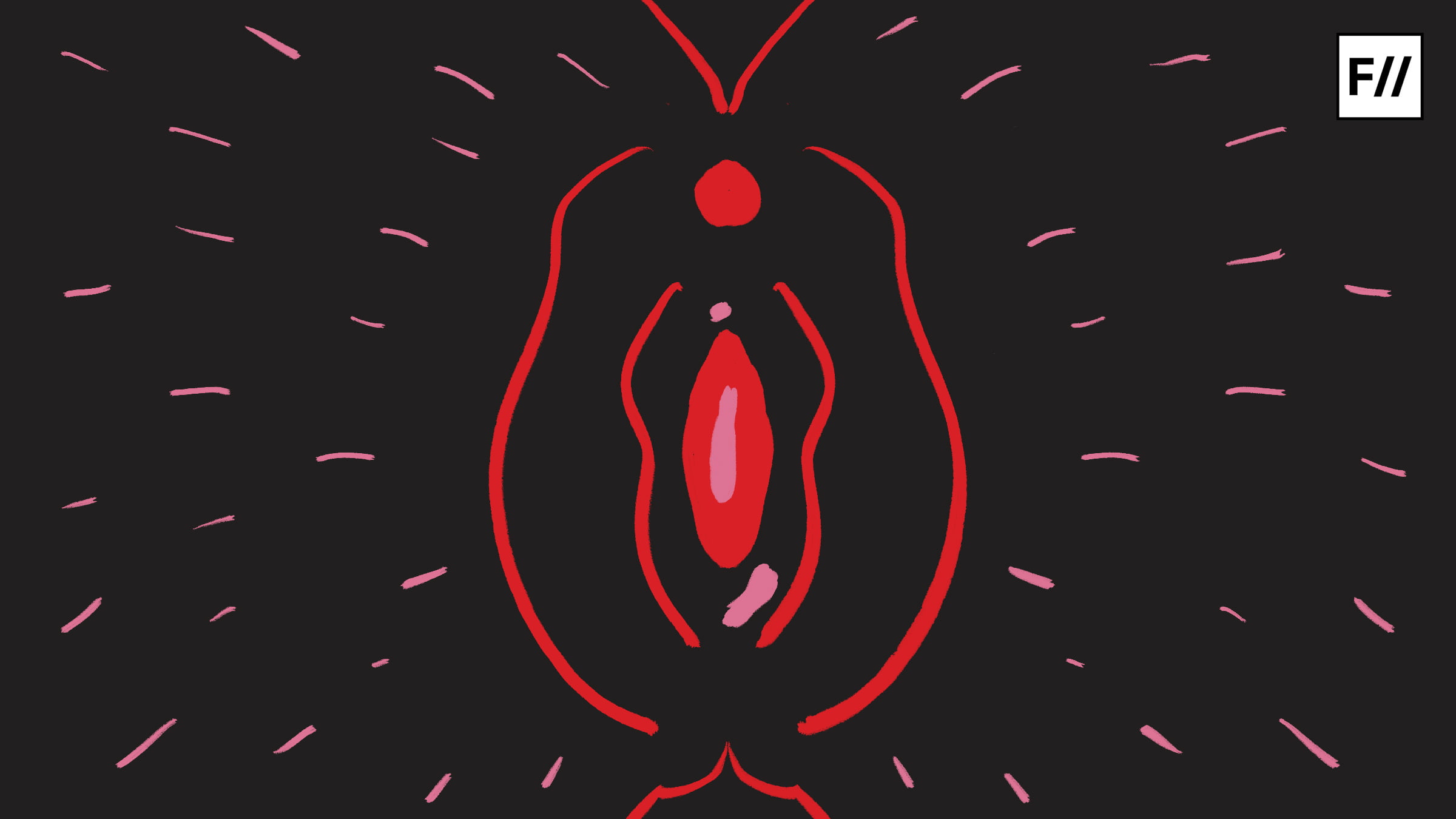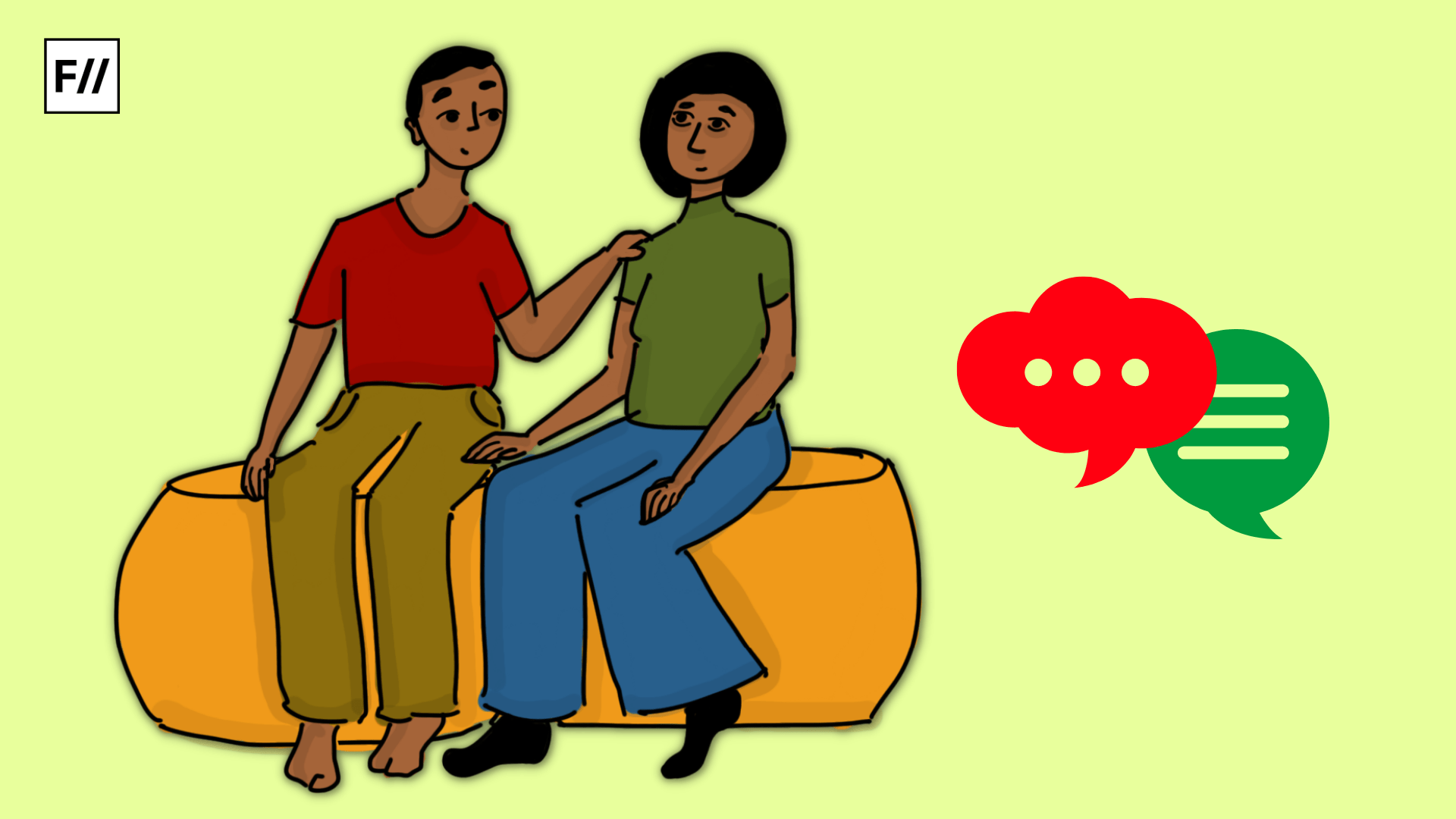Yes, you heard it right! All that you’ve learnt from the media, your friends, your parents, or even your doctor is wrong! Vaginal washes are not safe for you and let me tell you why you need to ditch them right away.
About 5 years ago, I suffered from vaginal infection for the first time. It was bad, itchy and uncomfortable to the core. I went to an experienced gynaecologist for check-up, one whom my mother trusted and was someone you could rely on. Her face showed the years of practice that she had, dealing with problems such as mine and her talk about curing the infection oozed with confidence. She examined me quickly, reassured me that it’ll be okay. Along with the medicines, she handed me a bottle of vaginal wash. Use this every day, it’ll keep your vagina safe, I remember her advising me.
For those of you who don’t know what are vaginal washes, like I didn’t know about it then, they are liquid soaps for our vaginas, which promise to keep them ‘clean, protected, and odour-free’. It sounded like the perfect solution for my irritable vagina back then, like a magic potion which can soothe it, cure it, and eventually prevent it from going sour again. But none of these things came true. In the past 5 years, I’ve suffered from repeated infections, and even now I am prone to infections. This, after having constantly used the wash every single day from the time my gynaecologist had recommended me to. This shows that everything I was promised by her turned untrue.
Around two years ago, I read an article which helped me change my perspective. It challenged everything I had learnt of my vagina and the wash. Then after, I have come across similar pieces or advises across internet or from few people around me. Even after repeated infections, it never occurred to me to question the effectiveness of my wash. Unlearning anything takes some time, and even breaking the habit of using the vaginal wash each day took considerable time for me, to be precise, more than a year.
I’d like to urge seriously to everyone, you don’t need vaginal washes. It’s a sham!
I first stopped using it on days when I would feel no discomfort. Later, I used it only on alternate days until one day, when I felt I don’t need it anymore. And it’s been almost 6 months since then, and I’ve felt no change because of it. I’ve not been any more prone to infections than I was while I was using it, nor has the itching and irritation increased, for when I do get infections. I can even go ahead to say that I’ve suffered not from any major infection, apart from occasional irritation in the past 6 months. To all the companies who want to convince us that we need washes, my vagina and I are doing just fine. It is almost as if it did nothing, apart from my vagina not smelling like vagina a couple of hours after I would bathe.
And after all this experience, I’d like to urge seriously to everyone, you don’t need vaginal washes. It’s a sham, a ploy to fool women into believing they need it, by the capitalist companies wanting to make money out of sexist beauty notions for women. Take it from someone with an experience of using it for 5 years, only to ditch it eventually.
History Of Vaginal Washes
The oldest practice of vaginal cleaning was douching, which is washing of vaginal cavity with water or other cleansing fluids. It was initially introduced as early as the 1830s, with different people experimenting with different materials to make douches. It was later popularly practised in the first half of the 20th century in the United States. It was also looked at as a popular form of birth control. Current day birth control methods like condoms were expensive and not easily unavailable, thus forcing women to resort to douching. Contraceptive oral pills came to the market much later, after 1960s. But it did not prevent pregnancy. It was also marketed as a hygiene product, claiming to keep women safe from sexually transmitted infections, but even that didn’t work.
Also read: The Journey Of Menstrual Hygiene Management In India | #ThePadEffect
The most popular brand of douche at that time was Lysol. Yes, the same Lysol which is popularly used as a toilet disinfectant today! Before 1953, it contained a chemical called cresol, which was so harmful that there were reports of it causing inflammation, burning, and even deaths. Despite the manufacturers knowing all of this, it was aggressively marketed as gentle and safe for women, and an important hygiene product, until later when it was pushed as a germicide fit for toilet cleaning.
Today, even though douching is largely discouraged, and something that has not even entered Indian markets, there are a range of other feminine products, gels, creams, wipes and washes, which are actively propagated as healthy.
The Vaginal Ecosystem
“The vagina is a perfectly-balanced ecosystem, and the bacteria there play a crucial role in gynaecological health. The skin cells of the vagina contain high levels of sugar molecules called glycogen, which bacteria break down to produce lactic acid. This helps to keep the vagina at the specific, acidic pH range it needs to keep itself clean and healthy, which is about 3.5 to 4.5 – about the same as a tomato (the rest of your skin has a pH of about 5 to 6, similar to rainwater). The best thing you can do is to not interfere with this process”, writes Dr. Austin Ugwumandu for the Daily Mail.
We do not need any of the products for keeping our vaginas healthy, be it washes, gels, wipes or douche. This is true, even though my gynaecologist prescribed it to me, like many other doctors prescribing drugs not needed for our bodies, only to increase medicine sales.
Our vagina is a balanced ecosystem. It has both good and bad bacteria and has its own way of fighting germs.
Our vagina is a balanced ecosystem. It has both good and bad bacteria and has its own way of fighting germs. Vaginal washes prescribing of a certain pH level, mess with the balance of the vagina, killing its intrinsic capacity to fight, thus rendering it more susceptible to infections. This is proved with evidence by the study by Cain, Cunningham and others of the University of Guelph, Canada, conducted early this year, published by BMC Women’s Health Journal.
The study covered 1435 respondent with the purpose of understanding the variety and prevalence of vaginal/genital health and hygiene practices and its correlation with gynaecological health conditions. Participants who reported use of any vaginal/genital health and hygiene product(s) had approximately three times higher odds of reporting any adverse health condition, and those who reported using feminine washes/gels specifically, had almost 3.5 times higher odds of reporting Bacterial Vaginosis, which is growth of harmful bacteria in the vagina thus disrupting the balance. Thus the study pointed to use of vaginal washes and other products to increasing the risk of vaginal health problems, and spoke of the need for further research in this area.
Besides, these washes are no medical products. Even though they talk of maintaining the pH so as to protect the vagina from germs, they are essentially meant to keep our vaginas fresh and odour free, as marketed. Thus, we shouldn’t be fooled by expecting the washes to do anything more.
But according to Dr. Ugwumandu, washes do nothing for our vaginas as they are to be used externally. Thus, in his opinion, they are completely unnecessary.
Vagina being a sensitive area, using such products with different ingredients could result in us risking ourselves to allergies too.
Marketing Misplaced Ideas Of Beauty
It is important to note what Liz Cookman writes for The Guardian, “Science has long been misappropriated in order to sell products, particularly those aimed at women.” I present the examples of four advertisements here – 2 of V Wash and 2 of Clean and Dry, both being two brands of vaginal washes.
One woman at the end of one of V Wash advertisements says, “For my daily comfort, for my daily confidence.” Having confidence or the lack of it has been made to directly link with using of the wash.
https://www.youtube.com/watch?v=3k89IMNg69s
In the second advertisement for the same brand, Vidya Balan is shot in a way as if she is actually having a conversation with the viewers. She talks about how she does things most women don’t, indicating the boldness in her discussing ‘intimate area’ and its hygiene. She then brings back the discussion on women and them not being able to take independent choices even in this day and age, with them being bogged down by the different roles they have to perform, reminding us of the importance of sharing the relationship with self.
https://www.youtube.com/watch?v=8Rc7_BhWvTg
Lastly, she talks about how when her being independent or taking her own decisions were questioned, she listened to only herself, just like how she chose to use the vaginal wash as it was a progressive and important choice for us to take care of our hygiene. Two absolutely different subjects – one of being able to make independent choices and two of using the wash are blended together in the advertisement, making the use of the wash almost a feminist practice.
What these advertisements and the entire industry on vaginal care products is trying to do is guilting our vaginas for not being how they ‘should be’.
This third advertisement isn’t as sly as the first two, but is outright sexist. A woman is shown forlorn, longingly looking at her partner who is not interested in her.
The reason for such a pained relationship is shown to be her neglect towards not keeping her vagina fresh, making her unattractive to him. After her using the wash, she becomes a happy woman, playfully teasing her husband, who is shown to be completely into her. If this wasn’t sexist enough, reminding us of the old Lysol advertisements half a century ago in America, the advertisement becomes racist by suggesting that the wash would lighten our skin because yes women, all we needed until now was a fair vagina!
Another series of advertisements by Ratna Phatak Shah, wherein she urges to talk openly about the problems ‘down there’, also runs on similar lines, that of Vidya Balan’s advertisement.
Also read: My Experience Of Growing Up With Hygiene Myths in India
What is important here to note is how the advertisements have offered women who have played strong roles and are known in the media to have been independent, suggesting the use of vaginal washes.
What these advertisements and the entire industry on vaginal care products is trying to do is guilting our vaginas for not being how they ‘should be’, to make us buy the products. They are spreading misogynistic ideas of beauty, and hyper ideas of the need for vaginas to be squeaky clean. Vaginas are meant to have bacteria, and are meant to smell like vaginas. Not like flowers and fruits.
My sincere advise to everybody is to ditch the use of the wash and to not to spend on these capitalistic ploys of companies wanting to make money out of making women insecure. Our vaginas are beautiful as they are.
Also read in Hindi: वजाइना को वॉश के बाज़ार से ज़्यादा स्वतंत्र छोड़ने की ज़रूरत है
Featured Image Source: Fred Hutch
About the author(s)
Pragati has been part of PRADAN, an NGO working with women in the Adivasi areas of Madhya Pradesh for the past 3 years. Currently on a break from work, she dreams one day of being able to grow her own food, write exactly what she thinks and read all the books she has collected.




